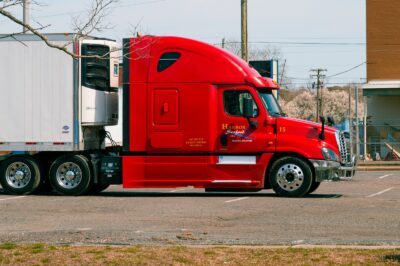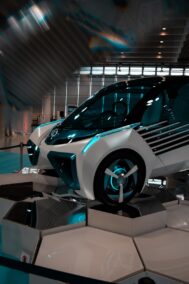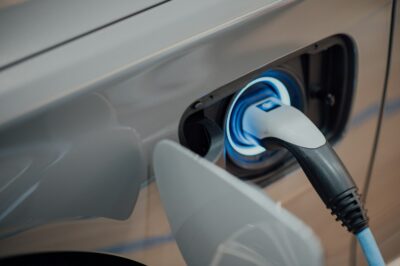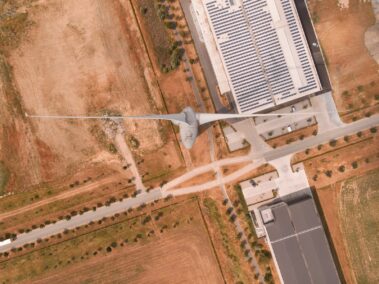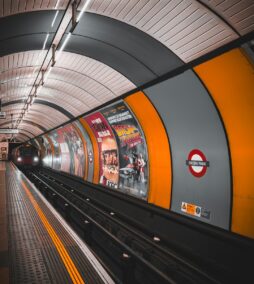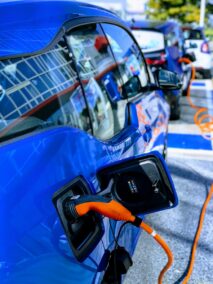Innovative Approaches to Integrate Renewable Energy in Transportation
Renewable Energy in Transportation: A Vision for Sustainable Mobility
The integration of renewable energy in transportation systems is pivotal for promoting sustainable mobility. This approach is increasingly gaining traction in global cities, including Riyadh and Dubai, which are at the forefront of adopting green technologies. By leveraging renewable energy sources such as solar, wind, and biofuels, these cities aim to reduce their carbon footprint and enhance energy efficiency in their transportation networks.
In Riyadh, the implementation of solar-powered electric vehicle (EV) charging stations is a significant step towards sustainable mobility. These stations harness the abundant solar energy available in the region, providing a clean and renewable power source for EVs. This not only supports the city’s sustainability goals but also encourages the adoption of electric vehicles, which are essential for reducing greenhouse gas emissions.
Similarly, Dubai is pioneering in the use of biofuels for public transportation. The Dubai Roads and Transport Authority (RTA) has introduced buses powered by biofuels derived from organic waste, significantly cutting down on emissions and promoting a circular economy. This initiative is part of Dubai’s broader strategy to become one of the world’s most sustainable cities by 2050, aligning with the UAE’s national vision for a green economy.
Technological Innovations Driving Renewable Energy Integration
The integration of renewable energy in transportation is being driven by various technological innovations. One of the most notable advancements is the development of smart grid systems. These systems facilitate the efficient distribution and utilization of renewable energy, ensuring that transportation networks can rely on a stable and sustainable power supply.
In Saudi Arabia, the smart grid pilot projects are underway, showcasing how advanced technologies can support the integration of renewable energy into the national grid. These projects are crucial for managing the variability of renewable energy sources, such as solar and wind, ensuring a reliable power supply for electric buses and trains. The success of these projects could serve as a model for other regions looking to enhance their transportation sustainability.
Blockchain technology is also playing a crucial role in the renewable energy landscape. By providing a transparent and secure platform for energy transactions, blockchain enables the efficient management of energy resources. This is particularly beneficial for decentralized renewable energy systems, where multiple stakeholders are involved. For instance, blockchain can facilitate the peer-to-peer trading of solar energy among electric vehicle owners, enhancing the overall efficiency and sustainability of the transportation network.
The Role of Policy and Leadership in Promoting Sustainable Mobility
Effective policy and strong leadership are essential for the successful integration of renewable energy in transportation. In the UAE and Saudi Arabia, government policies are increasingly supporting green initiatives and renewable energy projects. These policies are designed to create an enabling environment for innovation and investment in sustainable transportation solutions.
In Riyadh, the government has introduced incentives for the adoption of electric vehicles, including tax rebates and reduced registration fees. These incentives are aimed at encouraging more individuals and businesses to switch to electric vehicles, thereby reducing the city’s carbon emissions. Furthermore, the government is investing in the development of infrastructure, such as charging stations and smart grids, to support the growing number of EVs.
Dubai’s leadership in promoting sustainable mobility is evident through its ambitious plans and projects. The city’s strategic vision includes the development of a comprehensive public transportation system powered by renewable energy. The RTA’s initiatives, such as the introduction of solar-powered water taxis and electric buses, highlight Dubai’s commitment to sustainability. These projects are supported by robust policies and regulations that promote the use of renewable energy and energy-efficient technologies.
The Future of Transportation: A Sustainable and Innovative Landscape
Advancing Electric Mobility with Renewable Energy
The future of transportation is increasingly electric, with renewable energy playing a crucial role in powering this transition. The adoption of electric vehicles (EVs) is on the rise, driven by advancements in battery technology and the growing availability of charging infrastructure. In Saudi Arabia and the UAE, significant investments are being made to expand the EV charging network, ensuring that renewable energy is readily available to power electric vehicles.
In Riyadh, the government’s Vision 2030 plan emphasizes the importance of sustainable transportation. The city is investing in the development of a comprehensive EV charging network powered by solar energy. This initiative is aimed at reducing the reliance on fossil fuels and promoting the use of clean energy sources. The integration of renewable energy into the transportation sector is not only environmentally beneficial but also economically advantageous, as it reduces the cost of energy and enhances energy security.
Dubai’s commitment to advancing electric mobility is evident through its various initiatives and projects. The city’s Green Mobility Strategy aims to increase the adoption of EVs by providing incentives and developing the necessary infrastructure. The Dubai Electricity and Water Authority (DEWA) is playing a key role in this effort by establishing a widespread network of solar-powered EV charging stations. These stations are strategically located across the city to ensure that renewable energy is accessible to all EV users, promoting sustainable and efficient transportation.
Harnessing the Potential of the Metaverse and AI in Transportation
The integration of renewable energy in transportation is being further enhanced by the advent of new technologies such as the metaverse and artificial intelligence (AI). These technologies are transforming the way transportation systems are managed and operated, making them more efficient and sustainable. In Saudi Arabia and the UAE, the adoption of AI and the metaverse is revolutionizing the transportation sector, creating new opportunities for innovation and growth.
In Riyadh, AI is being utilized to optimize the operation of electric buses and trains. Advanced algorithms analyze data from various sources, such as weather conditions and traffic patterns, to predict energy demand and optimize energy usage. This ensures that renewable energy is used efficiently, reducing waste and enhancing the sustainability of the transportation network. Additionally, AI-powered predictive maintenance systems are being implemented to improve the reliability and performance of electric vehicles, further promoting their adoption.
Dubai is exploring the potential of the metaverse to create a virtual transportation ecosystem. This digital environment allows for the simulation and optimization of transportation systems, providing valuable insights into how renewable energy can be integrated more effectively. For example, the metaverse can be used to simulate the impact of different renewable energy sources on the transportation network, helping policymakers make informed decisions. This innovative approach is part of Dubai’s broader strategy to leverage advanced technologies for sustainable development.
Conclusion: Embracing a Sustainable Future in Transportation
The integration of renewable energy in transportation is essential for achieving sustainable mobility in Saudi Arabia and the UAE. By leveraging advanced technologies and implementing supportive policies, these countries are leading the way in promoting green transportation solutions. The adoption of electric vehicles, the development of smart grid systems, and the use of blockchain technology are just a few examples of how renewable energy is being integrated into transportation networks.
In Riyadh and Dubai, the commitment to sustainability is evident through various initiatives and projects aimed at reducing carbon emissions and enhancing energy efficiency. The success of these initiatives serves as a model for other cities and countries looking to promote sustainable mobility. As the world continues to face the challenges of climate change and energy security, the integration of renewable energy in transportation will play a crucial role in creating a sustainable and resilient future.
—
#renewableenergy #transportation #sustainablemobility #SaudiArabia #UAE #Riyadh #Dubai #greenenergy #electricvehicles #cleantransportation


